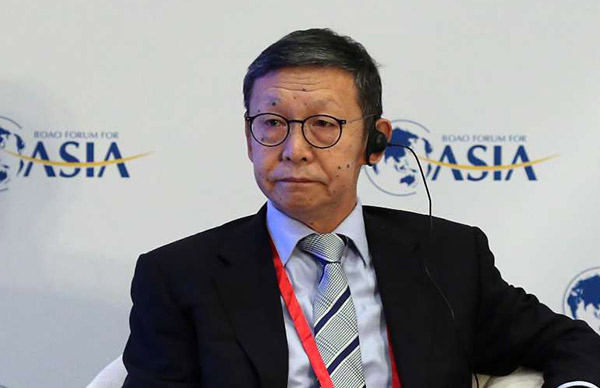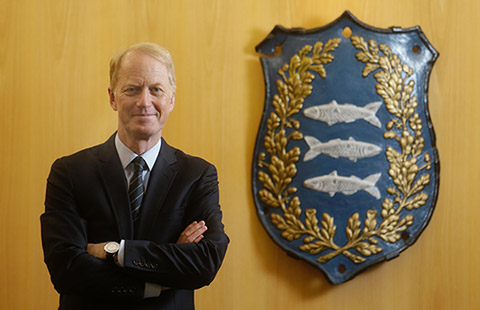Experts stress policy coordination, reform
Boao panelists underline key lessons learned from 1997 Asian financial crisis

Cai Esheng, former vice-chairman of the China Banking Regulatory Commission.[Photo/China Daily]
"Countries should enhance domestic reforms while enhancing their policy coordination, to avoid a new round of financial crisis," said Cai Esheng, former vice-chairman of the China Banking Regulatory Commission, at a panel discussion, while looking back on lessons learnt from the Asian financial crisis in 1997.
Cai's remarks came amid concerns over whether the United States' interest rate hikes would spark a sharp depreciation of yuan and continued capital outflows in China, leading to a scenario similar to that in 1997.
The Thai currency depreciated heavily against the dollar and soon extended that move to the rest of the neighboring Asian economies 20 years ago.
As the crisis spread, companies then found it extremely expensive to pay their debts in dollars when compared with the local currencies.
The US Federal Reserve raised its benchmark interest rate last week, the third time it has decided to do so since 2015, leading to a recent strengthening of the dollar compared with currencies in the emerging markets.
Kent Calder, an economics professor at Johns Hopkins University, said a strong dollar would help the US economy in the short run, but would not be beneficial in the longer run and would hamper the interests of other countries.
"With a current forex reserves level of $3 trillion, China is capable of dealing with external challenges," said Cai, adding that the market should not read too much into the headline numbers because back in 1997 the Chinese economy retained its resilience, even with only around $130 billion in reserves.
To avoid a new round of crisis, Cai said China should continue to implement its exchange rate reforms based on market-based principles and appropriately use its foreign exchange reserves to help keep the yuan's exchange rate stable.
Indonesia's Minister of Trade Thomas Lembong said reforms to implement the internationalization of the yuan would help China to better cope with US interest rate rises, because less debts would have to be paid in dollars with a rise in the value of the yuan.
Countries are able to use local tools at their disposal to cope with challenges brought by US interest rate hikes, according to Ryozo Himino, vice-minister for international affairs of the Financial Services Agency of Japan.
"Regional cooperation schemes, such as the Chiang Mai Initiative, have improved regional capacity to deal with financial risks compared with 20 years ago," Himino said.
"It is essential to enhance cooperation and policy coordination through such mechanisms to avoid financial shocks."

















